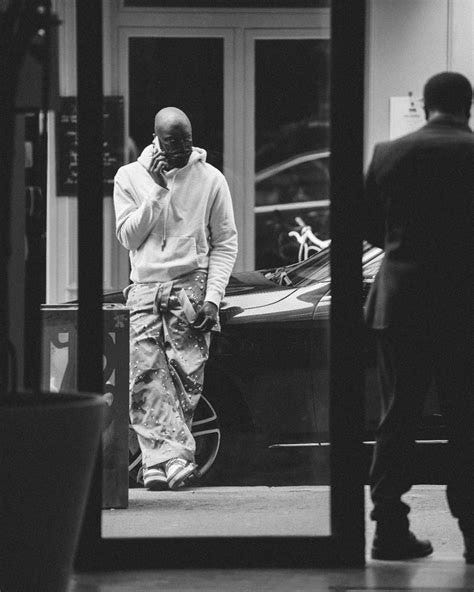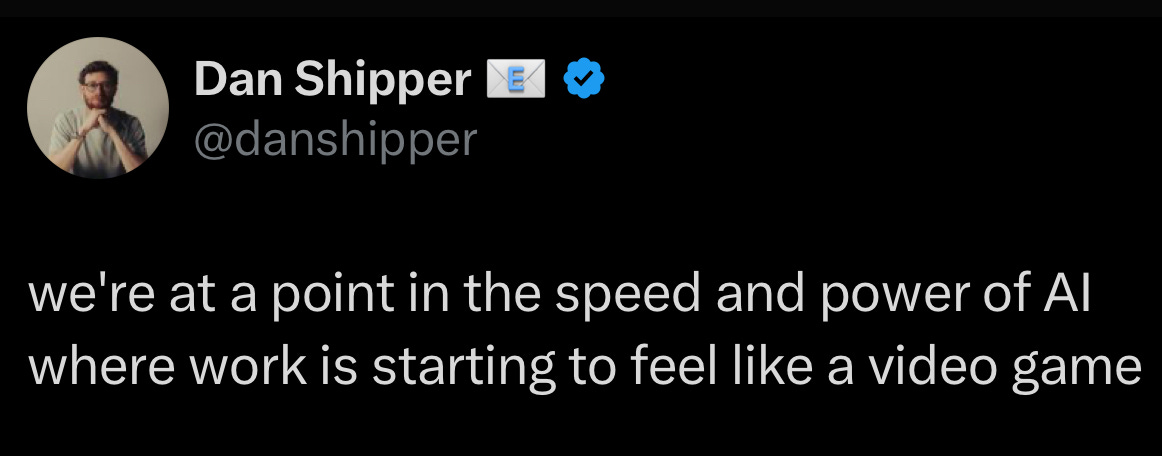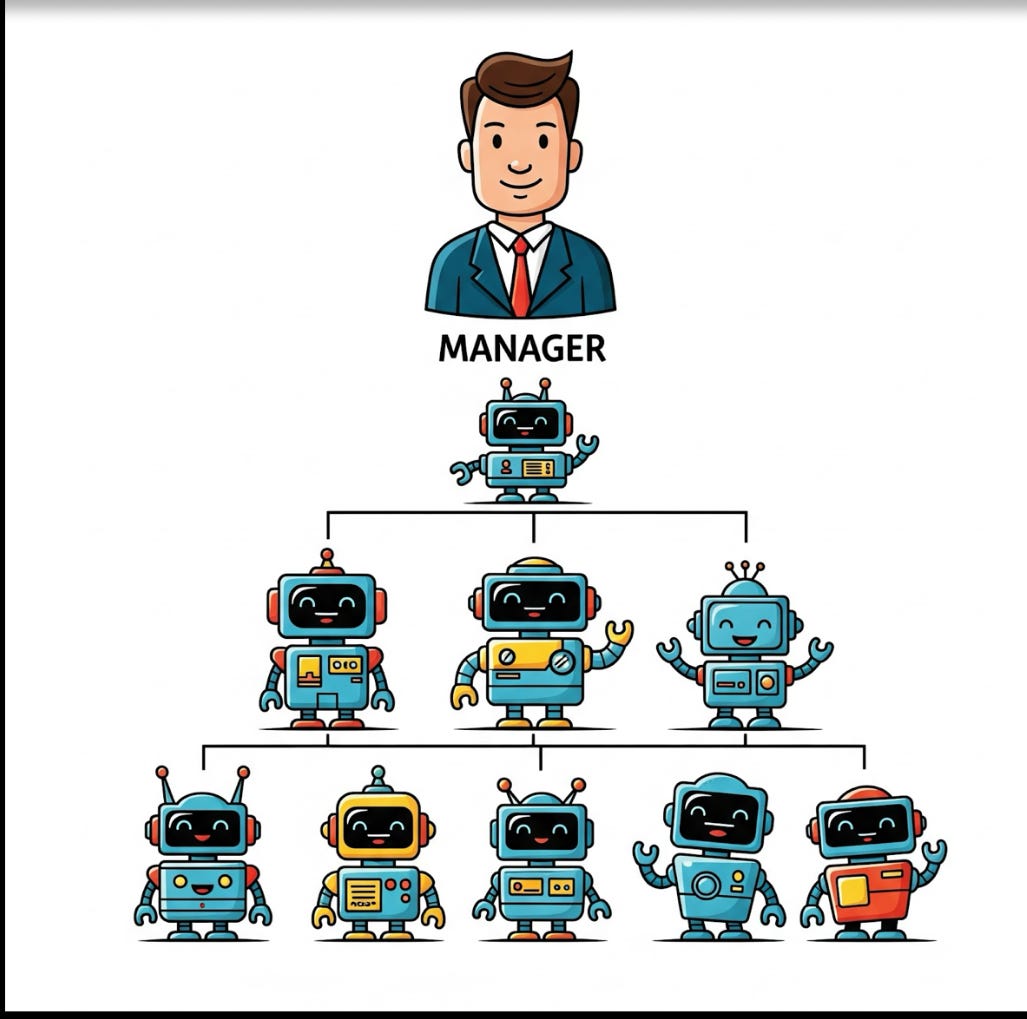The Virgil Abloh Theory of Work
The phone is the office; taste is the job.
I don’t believe in titles, I believe in work.
—Virgil Abloh
Above: Abloh at work in his “office.”
The late, great Virgil Abloh lived life in the fast lane.
Founder of Off-White and artistic director of Louis Vuitton’s menswear, he spent a career always creating, crafting, and connecting—poetry that came from frenzy, not stillness.
He once said, “I always live in multiple places. I’m never in the same city for seven days.” Contrary to most cases, this motion was, in fact, always progress.
Abloh had no desk, he worked “on the street, phone in hand.” Nearly all of his designing, directing, and deciding happened on two phones, not behind a monitor.
As he put it: “If I have a fully charged phone, I can do anything.”
Marshall McLuhan told us “the medium is the message.” If your medium is a 6-inch slab of glass you clutch between subway stops, that says something both about the kind of work you’re doing and the kind of worker you’ve become.
Put simply, as you move up and branch out—fractional this, advisor that, investor here, consultant there—your work migrates from keyboard to thumbs, from desktop to pocket.
The job stops being execution and starts being orchestration.
Fewer keystrokes, more voice notes.
Fewer spreadsheets, more group chats.
I call it the Virgil Abloh Theory of Work: status and influence are inversely correlated with screen size.
The more senior you are, the less you’re tethered to a desk; the more your value is coordination, curation, and direction, the more your “office” becomes a phone and a flurry of encrypted chats.1
Abloh ran empires through WhatsApp and iMessage. Sketches shot across time zones. Feedback fired off as voice memos. Project management reduced to a persistent scroll of green and blue bubbles.
This is not the quirk of a genius multitasker, but rather a signal of where the world of work is going. The medium (e.g. chat threads, Notes screenshots, markup on JPGs) is the message: creative direction today is less a solemn sit-down and more a perpetual ping.
My Life, Shrunk to a Screen
The more I write, the more I bend my writing around my life, not the other way around. Long-form drafts start as half-thoughts tapped on the beach. Headlines get hammered out on a park bench. If my laptop is a studio, my phone is a sketchbook that actually comes with me.
I don’t “sit down to write” as often as I “steal five minutes between things.” Though the ergonomics are terrible; the throughput is great. As I’ve often said, most people don’t have an idea generation problem, they have an idea capture problem.
I used to think professionalism meant being planted at a desk for eight disciplined hours. Now professionalism feels like being reachable, decisive, and generative—wherever, whenever.
Performative, hunched-over grinding is out; ambient, effective orchestration is in.
Fractional = Fractal
My work acting “fractionally” for a number of companies means being fully present for none of them in a traditional sense. However, it necessitates keeping up with five different plots in your head and nudging each forward at exactly the right moments.
That’s what I call fractal work: tiny, repeated patterns of value creation—texts, intros, approvals, ideas—replicated across clients, deals, and teams.
Tools follow function.
Execution needed Excel; orchestration needs iMessage.
Execution needed Figma; orchestration needs a sharp, immediate “yes/no/try this instead.”
Abloh’s phone was the right tool for an interdisciplinary job defined by momentum, taste, and timing.
AI & Agents: The Great Orchestration
Zoom out: AI will keep swallowing execution.
Drafting the deck, summarizing the board packet and rewriting the CTA are all becoming table stakes for a decent model and a smart prompt. The remaining human premium shifts to taste, timing, and trust. That is, knowing which deck matters, when to send it, and who needs to feel seen.
Tired: coding for eight hours straight.
Wired: stitching eight different flows together, making judgment calls, setting constraints, re-aiming the swarm of AI agents.
Every’s Dan Shipper captured this well:
Your phone is the runner and your ideas are the baton; your job is to point it in the right direction so that it gets into the right hands at the right time without slowing things down.
The Status Geometry of Screens
In knowledge work, for better or worse, immobility can often signal junior-ness.
Being chained to a desktop = “I’m producing.”
Being in transit (i.e. physically or context-switching quickly) = “I’m deciding.”
To be clear: production matters. Someone has to write, ship, build. (Even Abloh had teams in studios turning his annotations into garments.) But the higher you go, the more your calendar morphs into a lattice of micro-moments: a nudge here, an approval there, a “this doesn’t work” at 11:42pm.
The desk becomes a place you visit, not a place you live.
Working Principles from the Abloh Playbook
Design your workflow around your life, not vice versa. If the best thinking happens walking, build a system that lets you capture, create, and communicate from a walk.
Treat chats as creative surfaces, not just comms pipes. Mark up screenshots. Drop voice notes. Use threads as living documents.
Default to orchestration; only dive into execution when leverage peaks. Ask: is this best done by me, by an agent, or by a prompt?
Protect islands of depth. If your medium is a phone, schedule medium detox. McLuhan never said that the medium had to be merciful.
Build a battery-first mindset. Power banks, duplicate chargers, redundant SIMs. If your office dies at 7%, so does your day.2
The Punchline
The Virgil Abloh Theory of Work is neither flex nor a fad. Instead, it’s an articulation of how knowledge work is mutating.
The CEO without an office.
The “fractional” operator whose value comes from input, not implementation.
McLuhan was right: the medium is the message. Our medium fits in our pocket. What message are we sending?
We’re leaving the era of building at a desk and entering the era of building in motion.
So keep moving, but don’t forget to sit down once in a while. And when you do, make sure you buckle up; it’s going to be a wild ride.
Per my about page, White Noise is a work of experimentation. I view it as a sort of thinking aloud, a stress testing of my nascent ideas. Through it, I hope to sharpen my opinions against the whetstone of other people’s feedback, commentary, and input.
If you want to discuss any of the ideas or musings mentioned above or have any books, papers, or links that you think would be interesting to share on a future edition of White Noise, please reach out to me by replying to this email or following me on Twitter X.
With sincere gratitude,
Tom
“Dark forests like newsletters and podcasts are growing areas of activity. As are other dark forests, like Slack channels, private Instagrams, invite-only message boards, text groups, Snapchat, WeChat, and on and on. This is where Facebook is pivoting with Groups (and trying to redefine what the word “privacy” means in the process).
These are all spaces where depressurized conversation is possible because of their non-indexed, non-optimized, and non-gamified environments. The cultures of those spaces have more in common with the physical world than the internet.” —The Dark Forest Theory of the Internet
But please keep a close eye on your screen time!





find Abloh very instructive - his use of rough work as 'evidence of humanity' particularly pertinent now! I also remember a GQ piece with Kanye West where he was stood in some house on the coast of Mexico issuing feedback on multiple projects in music, fashion, architecture etc etc, like an idea DJ – no coincidence they came up together
This is a very insightful piece of writing